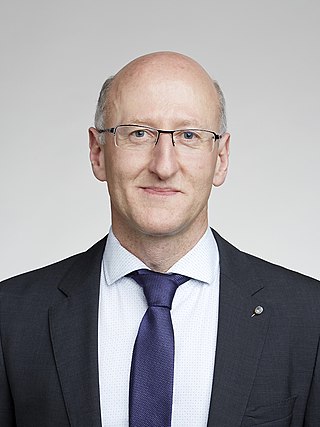
The European Molecular Biology Laboratory (EMBL) is an intergovernmental organization dedicated to molecular biology research and is supported by 28 member states, one prospect state, and one associate member state. EMBL was created in 1974 and is funded by public research money from its member states. Research at EMBL is conducted by approximately 110 independent research and service groups and teams covering the spectrum of molecular biology and bioinformatics. The list of Groups and Teams at EMBL can be found at www.embl.org. The Laboratory operates from six sites: the main laboratory in Heidelberg, and sites in Hinxton, Grenoble (France), Hamburg (Germany), Rome (Italy) and Barcelona (Spain). EMBL groups and laboratories perform basic research in molecular biology and molecular medicine as well as train scientists, students, and visitors. The organization aids in the development of services, new instruments and methods, and technology in its member states. Israel is the only full member state located outside Europe.

Dame Kay Elizabeth Davies is a British geneticist. She is Dr Lee's Professor of Anatomy at the University of Oxford and a Fellow of Hertford College, Oxford. She is director of the Medical Research Council (MRC) functional genetics unit, a governor of the Wellcome Trust, a director of the Oxford Centre for Gene Function, and a patron and Senior Member of Oxford University Scientific Society. Her research group has an international reputation for work on Duchenne muscular dystrophy (DMD). In the 1980s, she developed a test which allowed for the screening of foetuses whose mothers have a high risk of carrying DMD.
Geoffrey Lilley Smith FRS FMedSci FRSB is a British virologist and medical research authority in the area of Vaccinia virus and the family of Poxviruses. Since 1 October 2011 he is head of the Department of Pathology at the University of Cambridge and a principal research fellow of the Wellcome Trust. Before that, he was head of the Department of Virology at Imperial College London.

Dame Carol Vivien Robinson, is a British chemist and former president of the Royal Society of Chemistry (2018–2020). She was a Royal Society Research Professor and is the Dr Lee's Professor of Physical and Theoretical Chemistry, and a professorial fellow at Exeter College, University of Oxford. She is the first director of the Kavli Institution for Nanoscience Discovery, University of Oxford, and she was previously professor of mass spectrometry at the chemistry department of the University of Cambridge.

Matthias Werner Hentze is a German scientist. He is the director of the European Molecular Biology Laboratory (EMBL), co-director of the Molecular Medicine Partnership Unit between EMBL and Heidelberg University, and Professor of Molecular Medicine at Heidelberg University.
John Andrew Todd FMedSci FRS is Professor of Precision Medicine at the University of Oxford, director of the Wellcome Center for Human Genetics and the JDRF/Wellcome Trust Diabetes and Inflammation Laboratory, in addition to Jeffrey Cheah Fellow in Medicine at Brasenose College. He works in collaboration with David Clayton and Linda Wicker to examine the molecular basis of type 1 diabetes.

Ronald Alfred LaskeyFLSW is a British cell biologist and cancer researcher.

David Julian Harry Downward FRS FMedSci is Associate Research Director at the Francis Crick Institute and Senior Group Leader at the Institute of Cancer Research. He was formerly head of the Signal transduction Laboratory at the London Research Institute. He is a member of the Editorial Board for Cell.

Roger Sidney Goody is an English biochemist who served as director at the Max Planck Institute for Molecular Physiology in Dortmund from 1993 until 2013. Since 2013 he is Emeritus Director of the institute.

Wendy Anne Bickmore is a British genome biologist known for her research on the organisation of genomic material in cells.
Sir Hugh Reginald Brentnall Pelham, is a cell biologist who has contributed to our understanding of the body's response to rises in temperature through the synthesis of heat shock proteins. He served as director of the Medical Research Council (MRC) Laboratory of Molecular Biology (LMB) between 2006 and 2018.
John Tooze FRS was a British research scientist, research administrator, author, science journalist, former executive director of EMBO/EMBC, director of research services at the Cancer Research UK London Research Institute and a vice president at The Rockefeller University.

Jonathon Noë Joseph Pines is Head of the Cancer Biology Division at the Institute of Cancer Research in London. He was formerly a senior group leader at the Gurdon Institute at the University of Cambridge.

(Edith) Yvonne JonesFLSW is director of the Cancer Research UK Receptor Structure Research Group at the University of Oxford and a Fellow of Jesus College, Oxford. She is widely known for her research on the molecular biology of cell surface receptors and signalling complexes.

Anne Jacqueline Ridley is professor of Cell Biology and Head of School for Cellular and Molecular Medicine at the University of Bristol. She was previously a professor at King's College London.

Sir Richard Henry Treisman is a British scientist specialising in the molecular biology of cancer. Treisman is a director of research at the Francis Crick Institute in London.

Neil Alexander Steven Brockdorff is a Wellcome Trust Principal Research Fellow and professor in the department of biochemistry at the University of Oxford. Brockdorff's research investigates gene and genome regulation in mammalian development. His interests are in the molecular basis of X-inactivation, the process that evolved in mammals to equalise X chromosome gene expression levels in XX females relative to XY males.
John Francis Xavier Diffley is an American biochemist and Associate Research Director at the Francis Crick Institute. He is known for his contributions to the understanding of how DNA replication is initiated, and how it is subsequently regulated throughout the cell cycle and in response to DNA damage.
Gurdyal Singh Besra is Bardrick Professor of Microbial Physiology & Chemistry at the University of Birmingham.
Caetano Maria Pacheco Pais dos Reis e Sousa is a senior group leader at the Francis Crick Institute and a professor of Immunology at Imperial College London.













